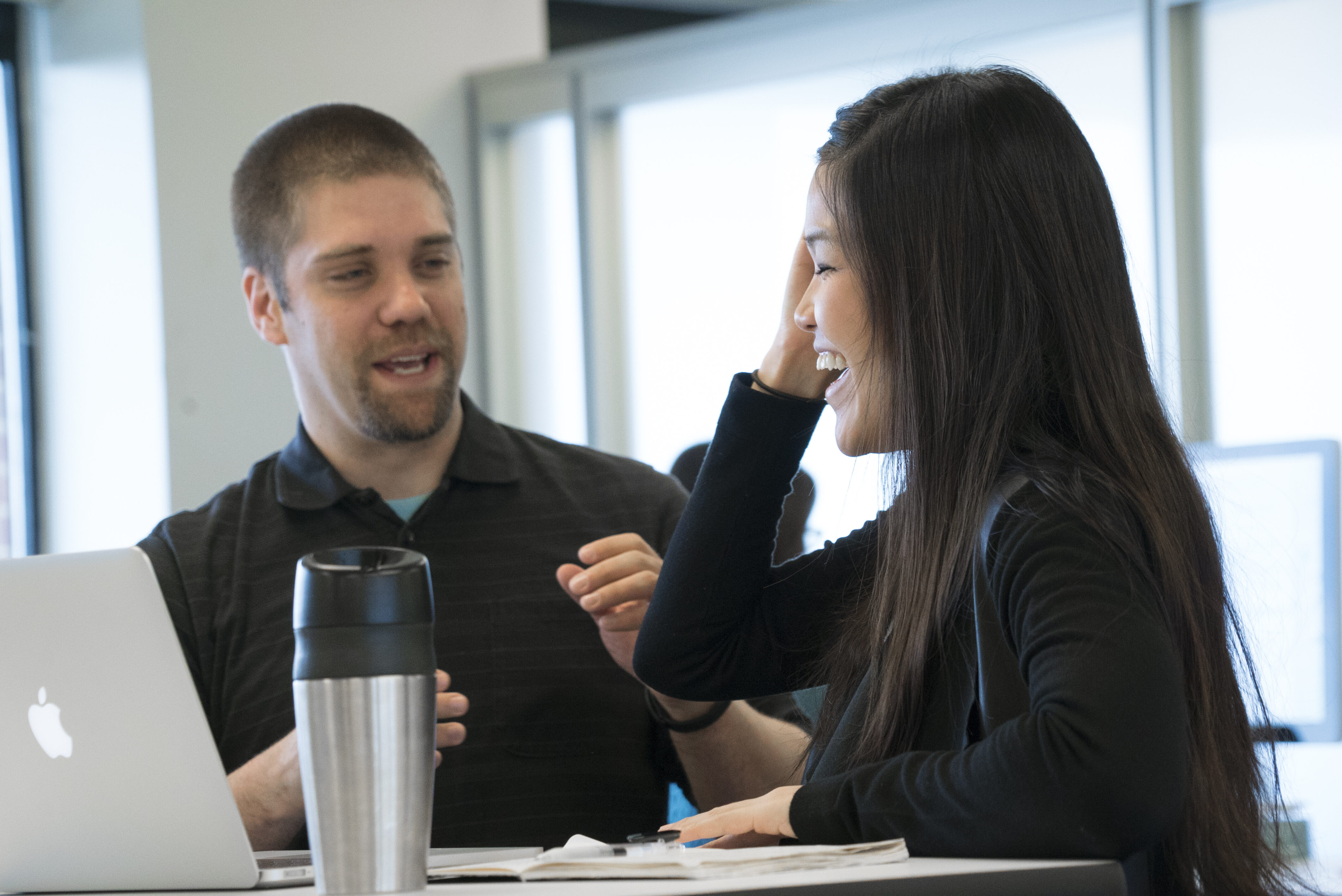
ECoach, a personalized education tool developed at the University of Michigan, has been expanded this fall to serve all first-year U-M students.
“The goal is to ease the transition to college for all students,” said principal investigator Tim McKay, the Arthur F. Thurnau Professor of Physics, Astronomy and Education, and director of U-M’s Digital Greenhouse in the Office of Academic Innovation. “By learning more about every student, then providing them all with personalized feedback, encouragement and advice, FirstYear will help ensure a more successful launch for every student.”
The ECoach team launched the first coaches in introductory physics classes in 2012. Since then, they have worked with with students, faculty and staff from many departments to create coaches for other large introductory courses. To date, more than 15,000 U-M students have received personalized support using the tool.
In addition to expansion to all first-year students, McKay recently received a National Science Foundation $1.9 million grant to explore how personalization can help to advance equity on campus, especially in big science classes.
“Each student arrives at the University of Michigan with a unique personal, cultural and academic background. While on campus, each engages with a unique array of educational, social and professional experiences. Along the way, their interests and goals, ambitions and fears, evolve continuously,” McKay said.
“Every graduate possesses a unique mix of enthusiasms, skills, and desires. Students are all, always, different from one another. Recognizing and responding to difference is what effective teachers do. Personalization has always been the essence of great teaching.”
McKay said the factors that make ECoach special include the ability to tailor content, style and voice; the ability for people to share what they have learned with one another; the close contact with experts on each element of coaching; and the ability to place students in context, historical and current.
ECoach is part of an initiative that will build upon the work of individual faculty members and the Office of Academic Innovation to create a strategy for the future of education.
About a year ago, ECoach became part of the Digital Innovation Greenhouse, as McKay and the team began to plan for how the tool could be expanded for other uses on and off campus. In the greenhouse, a team of developers and student fellows translate digital engagement tools from innovation to infrastructure, through collaborations across U-M’s digital ecosystem.
In coming years, ECoach will expand to address additional issues students face as their education progresses—selecting majors; pursuing complex opportunities like international study, honors theses, internships or research experiences; preparing for graduation; and seeking employment or further schooling.


